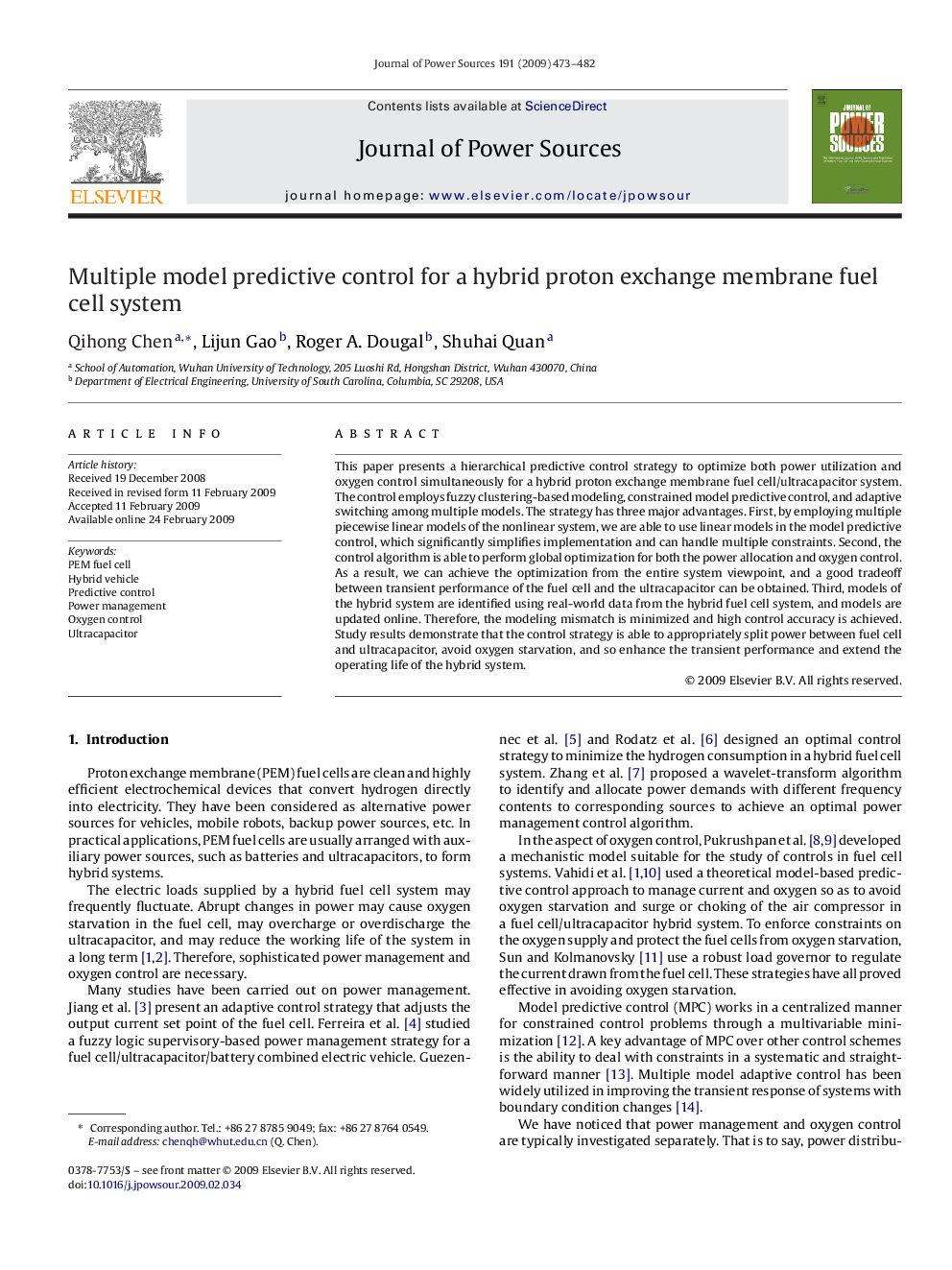| Article ID | Journal | Published Year | Pages | File Type |
|---|---|---|---|---|
| 1289741 | Journal of Power Sources | 2009 | 10 Pages |
This paper presents a hierarchical predictive control strategy to optimize both power utilization and oxygen control simultaneously for a hybrid proton exchange membrane fuel cell/ultracapacitor system. The control employs fuzzy clustering-based modeling, constrained model predictive control, and adaptive switching among multiple models. The strategy has three major advantages. First, by employing multiple piecewise linear models of the nonlinear system, we are able to use linear models in the model predictive control, which significantly simplifies implementation and can handle multiple constraints. Second, the control algorithm is able to perform global optimization for both the power allocation and oxygen control. As a result, we can achieve the optimization from the entire system viewpoint, and a good tradeoff between transient performance of the fuel cell and the ultracapacitor can be obtained. Third, models of the hybrid system are identified using real-world data from the hybrid fuel cell system, and models are updated online. Therefore, the modeling mismatch is minimized and high control accuracy is achieved. Study results demonstrate that the control strategy is able to appropriately split power between fuel cell and ultracapacitor, avoid oxygen starvation, and so enhance the transient performance and extend the operating life of the hybrid system.
